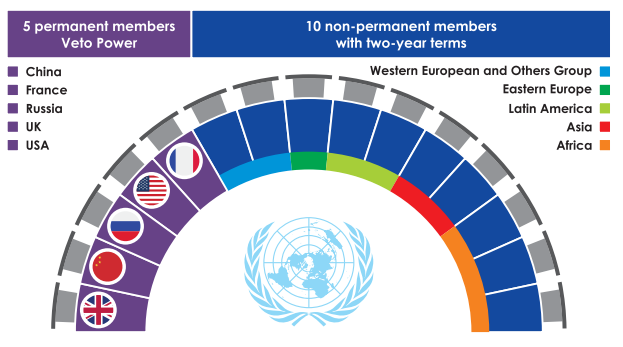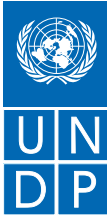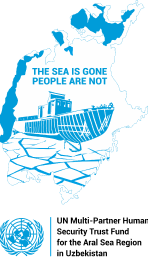
Section 6. United Nations and its specialized agencies
6.2. Security Council
The Security Council (SC) has primarily responsibility for the maintenance of international peace and security; all UN members are obliged to follow its decisions. It has 15 members, including 5 permanent members with veto power (Great Britain, China, Russia, USA, France) and 10 non-permanent, elected by the UNGA for two-year terms of five countries each year.

UNSC activity in 2023 on energy, climate and natural resources
SC organized: (1) ministerial-level Arria-formula meeting on "Protection of civilians: Achieving a better protection of water-related essential services and infrastructure for the civilian population during armed conflicts". The meeting also explored how addressing the adverse effects of climate change can help to inform measures to protect water services and related infrastructure (March 22); (2) open debate on sea-level rise and its implications for international peace and security (February 13) and on climate change, peace and security under the "Threats to international peace and security" agenda item (June 13).
Source: Security Council
6.3. Secretariat
The Secretariat is one of the main organs of UN. At the head of the United Nations Secretariat is the Secretary-General, appointed by GA upon recommendation of UNSC for a 5-year term. Since January 2022, Antonio Guterres (Portugal) has been serving as the Secretary-General.

"The women and men of the United Nations are determined in our efforts to address
today's cascading crises and set humanity on a new path to peace, stability and prosperity."
Antonio Guterres, Secretary-General
Each year, the Secretary-General reports on the work of the Organization, including priority areas of the UN's activity and future plans. 2023 Report highlights the work in the following key area: (1) sustainable development (United Nations country teams led by resident coordinators work in 162 countries and territories to help to implement the 2030 Agenda); (2) peace and security (deployed 53 peacekeeping operations, special political missions, and support offices to prevent conflict and support peace building); (3) development in Africa (helping 54 countries to leapfrog development challenges and catalyze a sustainable and equitable recovery from COVID-19 and the impact of cascading crises); (4) human rights (facilitated assistance for 47,000 victims of torture and 13,000+ victims of contemporary forms of slavery); (5) humanitarian assistance (helped to mobilize a record $30B to assist 216M people across 69 countries and territories); (6) justice and international law (as of 2023, 643 multilateral treaties addressing matters of worldwide interest are deposited with the Secretary-General); (7) disarmament (channeled funds to 112 arms-control-related projects benefiting 147 Member States); (8) drugs, crime and terrorism (assisted 29 Member States in drafting or revising firearms legislation and supported 60 countries in countering and preventing cybercrime).
Source: UN
6.4. UN Development Program
 The United Nations Development Program (UNDP) is the UN's global development network that promotes positive change and gives countries access to the knowledge, experience and resources that help improve people's lives. It operates in 177 countries and territories.
The United Nations Development Program (UNDP) is the UN's global development network that promotes positive change and gives countries access to the knowledge, experience and resources that help improve people's lives. It operates in 177 countries and territories.
UNDP activities in the Central Asian countries in 2023
UNDP in Kazakhstan
UNDP actively assists Kazakhstan in fulfilling its Paris Agreement commitments. This includes expanding green economy, introducing innovative farming techniques, strengthening disaster response systems and financing clean technologies.
Nature, land resources and ecosystem management. Continued: (1) Sustainable food systems and improved ecosystem services (2021-2026) aimed to trigger wide-scale adoption of efficient land management technologies and promote green value chains to reduce degradation of productive agricultural land and associated high value ecosystems in Northern Kazakhstan Landscape; (2) Reintroducing turan tiger (2021-2025); (3) Sustainable forest management, the goal of which is to preserve and sustainably manage the key globally important ecosystems for multiple benefits (2018-2024).
Energy and climate change. Continued: (1) Low-carbon urban development in Kazakhstan (2015-2024); (2) Financial support programs for entrepreneurs implementing energy efficiency and renewable energy projects; (3) Attracting investors in the field of energy efficiency (2021-2026) to advance energy efficiency of buildings, infrastructure, and other facilities in Kazakhstan.
Completed projects: (1) Just Transition – green biofuel to benefit women in rural areas of Kazakhstan (2022-2023), a pilot project on alternative fuel introduction; (2) Leveraging Nationally Determined Contributions (NDCs) to achieve net-zero emissions and climate-resilient development, in response to the climate emergency (2022-2023) aimed at introducing new climate smart technologies that can be scaled up on most of the farms, in the field of renewable energy, digitalization for water use, and proper drought control for small- and medium-size agriculture enterprises.
Source: open.undp.org/projects
UNDP in Kyrgyzstan
UNDP helps Kyrgyzstan achieve its national priorities, including in the area of green growth, access to green financing, management and fighting of climate change. In 2023, UNDP Kyrgyzstan implemented project portfolio for $20.8 million.
Climate change, environment and energy. Ongoing projects: (1) Partnership of Action for Green Economy (2017-2024), aimed to assist Kyrgyzstan to transfer to green economy; (2) Strengthening climate resilience of the Batken Province of the Kyrgyz Republic through introduction of climate smart irrigation and mudflow protection measures (2019-2023); (3) Climate change and resilience in Central Asia (Fergana Valley, 2021-2024) – completed assessments of climate risks, vulnerabilities and mapped climate hotspots; developed early warning for four selected pilot communities in three provinces of the Fergana Valley considered as highly vulnerable to climate change; (4) Advancing development of a National Adaptation Plan (NAP) process for medium and long-term adaptation planning and implementation in the Kyrgyz Republic (GCF/UNDP, 2021-2024), which prepares sectoral adaptation plans in addition to the national plan and developed climate-related statistics, including 95 specific indicators.
The Project "Conservation of globally important biodiversity and associated land and forest resources of Western Tian Shan mountain forest ecosystems to support sustainable livelihoods" (since 2017) was completed in 2023. Three field studies were conducted to assess the region's biodiversity and ecological corridors and buffer zones were mapped, and snow leopard population was quantified. Based on this, an ecological corridor spanning over 64 thousand ha and a buffer zone exceeding 25 thousand ha were established in Western Tien Shan.
SDG. Completed projects: (1) National SDG Acceleration Support Platform (2018-2023) – an anchor point for advancing SDG integrated approaches, to bring together work-streams for transformation impact; (2) UN Joint SDG Fund, Reinforce the SDG Financing Architecture (2020-2023), aimed to create an Integrated National Financing Framework (INFF), with the ambition to improve the efficiency, effectiveness, and transparency in the use of public funds and governance of private finance to support the implementation of Kyrgyzstan's National Development.
Source: www.undp.org/ru/kyrgyzstan and open.undp.org/projects
UNDP in Tajikistan
UNDP within the framework of its Country Programme for Tajikistan, 2023-2026 renders assistance to achieve: (1) sustainable, inclusive, and green economic growth; (2) integrated management of climate and environmental risk and (3) people-centred governance and rule of law. In 2023, UNDP's project portfolio in Tajikistan totaled $23.6 million.
Natural resource management. Continued: (1) Improvement of Water Resources Management in Khatlon Region (2022-2024) aimed to improve livelihoods, water supply and sanitation, irrigation and drainage systems of rural communities in Khatlon region; (2) Technical support to Tajikistan Water Sector Reform (2022-2024) to achieve an efficiently planned, developed and managed water sector; (3) An integrated landscape approach to enhancing the climate resilience of small-scale farmers and pastoralists in Tajikistan (2019-2025) aimed to introduce an integrated approach to landscape management to develop the climate resilience of rural communities in Tajikistan.
Climate change and energy. Continued: (1) Green Energy SME Development Project (2018-2024), the strategic objective is to facilitate the transformation of Tajikistan's energy sector, in particular the emergence of independent energy entrepreneurs. Draft "Concept for the development of the energy sector (RES)" was elaborated and coordinated with the Government of the Republic of Tajikistan, 543 solar, wind and BESS stations of generating capacity of 6721 kW were installed; (2) Enabling an Effective National Adaptation Plan (NAP) in Tajikistan (2020-2023), the main goal of which is to establish the institutional arrangements and human/institutional capacities to develop and execute National Adaptation Plans to implement Tajikistan's National Climate Change Adaptation Strategy; (3) Leveraging Nationally Determined Contributions to achieve net-zero emissions and climate-resilient development, in response to the climate emergency (2022-2023) aimed to strengthening community resilience to climate-induced disasters through nature-based solutions.
Source: open.undp.org/projects
UNDP in Turkmenistan
The focus areas of UNDP's work in Turkmenistan include assistance to better governance and inclusive economic growth, greater country resilience and adaptation to adverse effects of climate change. In 2023, UNDP's project portfolio in Turkmenistan included 27 projects .
Climate change and environmental protection. Continued: (1) Conservation and sustainable management of land resources and high nature value ecosystems in the Aral Sea Basin for multiple benefits (2021-2026), during which awareness raising and knowledge building activities were conducted to address capacity gaps of key stakeholders, the needs of local population and farmers around the buffer zones were determined, the list of biodiversity indicator species and their population status was confirmed, recommendations on sustainable pasture management options were drafted, etc.; (2) Developing a National Adaptation Planning process in Turkmenistan (2021-2024) – series of workshops on integration of adaptation to climate change in water use planning was held; (3) Sustainable Cities in Turkmenistan: Integrated Green Urban Development in Ashgabat and Awaza (2017-2024) - a work meeting was held with representatives of ministries and agencies in Turkmenistan to discuss key area of 'green' construction and sustainable urban development in the country.
SDG. The Project "Partnering for SDG acceleration" was launched in 2018. In 2024 it is planned to launch the third phase of the Project, which is to contribute to sustainable development by strengthening the capacity of the Ministry of Finance and Economy of Turkmenistan as the responsible body for coordinating activities for the implementation in Turkmenistan of the Sustainable Development Goals.
Source: www.tm.undp.org and open.undp.org/projects
UNDP in Uzbekistan
The focus areas of UNDP activities in Uzbekistan are strongly aligned with the National Development Strategy of Uzbekistan (2022-2026) and include programmes to promote effective democratic governance, achieve inclusive and sustainable growth, sustain a clean environment, take action for the climate, and advocate for equality between men and women.
Land and ecosystem management and sustainable development. Continued: (1) Sustainable Rural Development (2022-2025) to create favorable living conditions for rural residents and ensure their access to basic infrastructure, socio-economic services including access to health and education; (2) Climate resilient livelihoods of horticultural producers in Fergana Valley in Uzbekistan (2022-2023); (3) Conservation and sustainable management of lakes, wetlands, and riparian corridors as pillars of a resilient and land degradation neutral Aral basin landscape supporting sustainable livelihoods (2022-2026); (4) Facilitation and Support with Effective Implementation of the Integrated Roadmap for the Sustainable Development of the Aral Sea region (2022-2024).
The Project "Assisted afforestation for the vulnerable terrains" (2022-2023) was completed. 100 ha in Termez city and three districts in Surkhandarya province were planted with erosion control forest-forming species.
Climate change. Continued: (1) Promoting green urban development in Tashkent city through accelerating investments in low emission infrastructure (2021-2027); (2) Supporting an inclusive transition to a "green" economy in the Agri-food sector and development of a "climate-smart" Uzbek Agriculture Knowledge and Innovation System (UAKIS) (2021-2025); (3) Enhancing Multi-Hazard Early Warning System to increase resilience of Uzbekistan communities to climate change-induced hazards (2021-2028).
The Project "Supporting Self-Reliance through Climate Resilient Agriculture in the Aral Sea Region" was launched in 2023. This project, which will last to 2025, aims at increasing self-reliance of people in the targeted communities by introducing climate resilient agricultural practices and social infrastructure.
SDG. The project "Financing for sustainable development" (2020-2023) has been completed. The Project was aimed to enhance dialogue, coordination, national capacities and policy measures aimed at facilitation of effective financing strategy for the achievement of national SDGs in Uzbekistan.
In 2023, UNDP supported the Government of Uzbekistan to mobilize private investment in its green bond issuance of $350 million on the London Stock Exchange. Proceeds will be used to finance environmental, transportation and sanitation initiatives.
Source: www.uz.undp.org and open.undp.org/projects
The UN Multi-Partner Human Security Trust Fund (MPHSTF) for the Aral Sea region
 On 27 November 2018, the UN Headquarters in New York hosted a High-Level Event on the launch of the UN Multi-Partner Human Security Trust Fund for the Aral Sea Region in Uzbekistan (MPHSTF). In 2023, the United Nations Office for Project Services (UNOPS) signed a Memorandum of Understanding between the UN participating organization and the UNDP Multi-Partner Trust Fund Office on January 27.
On 27 November 2018, the UN Headquarters in New York hosted a High-Level Event on the launch of the UN Multi-Partner Human Security Trust Fund for the Aral Sea Region in Uzbekistan (MPHSTF). In 2023, the United Nations Office for Project Services (UNOPS) signed a Memorandum of Understanding between the UN participating organization and the UNDP Multi-Partner Trust Fund Office on January 27.
As part of its International Climate Initiative (IKI), the Government of the Federal Republic of Germany contributed €700,000 to MPHSTF to specifically support reducing stress on local communities caused by the deteriorating environmental situation.
At COP28, MPHSTF jointly with partners organized a side event titled "Showcasing the Aral Sea Restoration Activities for a Climate-Resilient Future". The event underscored the urgency of collective action in confronting environmental catastrophes, emphasizing the role of such initiatives in fostering resilient development (Dubai, UAE, December 2).
Completed projects. (1) Unleashing young people's and vulnerable citizens' creativity and innovation by strengthening their adaptive capacity to address the economic and food insecurities in the exposed communities of the Aral Sea region (2021-2023); (2) Towards universal health coverage and security in Karakalpakstan (2021-2023).
Two additional joint programs were financed for a total amount of $4.4 million. These are aimed to promote green and innovative community by empowering rural youth and women and to create climate resilient people-centered primary health care system: (1) Empowering youth towards a brighter future through green and innovative development of the Aral Sea region; (2) Laying the foundations for people-centered, climate resilient primary health care and water, sanitation and hygiene practices at healthcare facilities and schools in Karakalpakstan. Over 241,000 people and 5,000 school children are being benefited from access to climate resilient WASH services and healthy practices by the end of the project.
Source: www.aral.mptf.uz